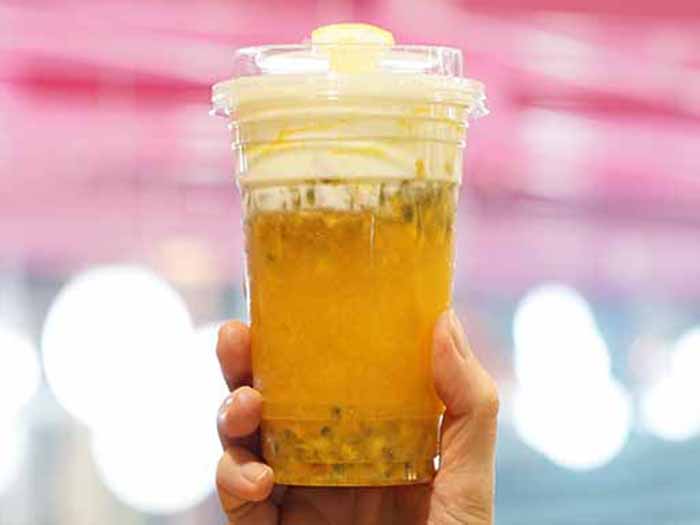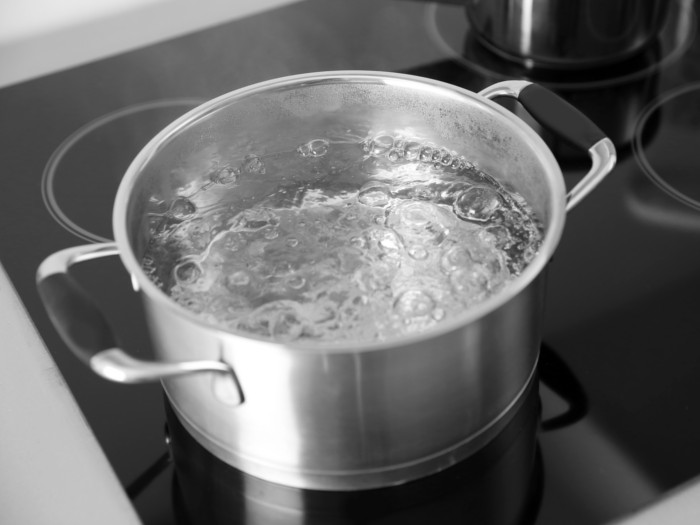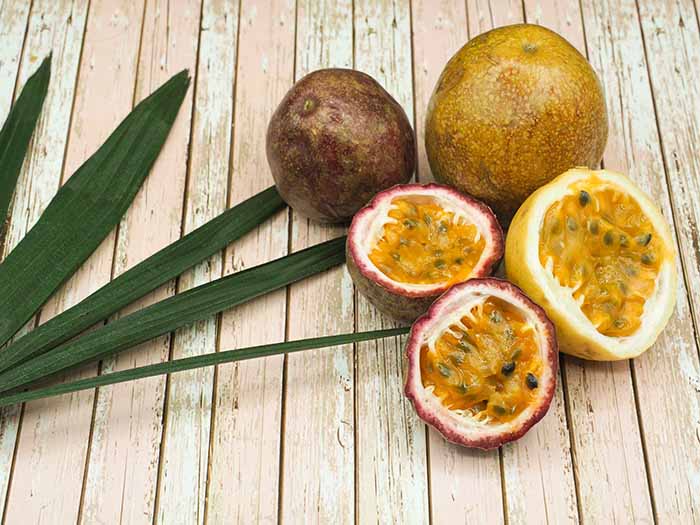Drinking passion fruit tea is a refreshing and delicious way to add some key nutrients to your daily diet, particularly if you suffer from certain health conditions.
What is Passion Fruit Tea?
Passion fruit tea is an herbal tea infusion that is typically made with a black tea base and pieces of passionfruit or the essence of that fruit, along with other spices of berries. Scientifically known as Passiflora edulis, the passion fruit grows on a vine, and is packed with phytonutrients, vitamins, minerals, amino acids, and antioxidants. When this tea is brewed, it has a bright and floral flavor and is very popular in parts of North, South, and Central America, where this vine species can commonly be found. Depending on where you are in the world, you may be able to find passion fruit tea in pre-packaged bags, or you can simply make your own with the fruit. [1]

Homemade iced passion fruit tea made with real fruit pulp. Photo Credit: Shutterstock
Passion Fruit Tea Benefits
The most important benefits of passion fruit tea include the following:
- Boosted immunity
- Reduced inflammation
- Lowered stress hormones
- Lowered anxiety
- Improved digestion
- Skin care
- Weight loss
With a high level of vitamin A, vitamin C, and other antioxidants, this tea can lower the strain on the immune system and reduce the negative impact of free radicals in the body. [2]
Furthermore, drinking this tea has been linked to lowering inflammation and stress hormone levels, which can, in turn, lower anxiety and improve digestive function.
Finally, some people seek out this tea for its rejuvenating effects on the skin and complexion. The amino acids provided by this tea are also valuable, as the building blocks of all proteins in the body. [3]
Since this tea is often made with a caffeinated base of black or green tea, there are also the energizing effects of this tea to consider, which can aid in weight loss efforts. [4]
How to Make Passion Fruit Tea?
Making your own passion fruit tea is quite simple, regardless of how you choose to brew it. Let’s take a look at the recipe below.

Passion Fruit Tea Recipe
Ingredients
- 12-15 passion fruits
- 2 tsp tea leaves
- 2 tsp lemon juice
- 2 litres water
Instructions
- To make passion fruit tea, bring a pot of water to boil.

- Add 2 tsp of tea leaves to the boiling water. Strain the tea and keep it aside.
- Meanwhile, cut the passion fruits and remove the pulp. Take a soup strainer and press the pulp through it to get the juice.

- Add it to the tea and stir to combine. Strain the tea and serve warm. You can have it cold by refrigerating it as well.

Connect With Us
If you have tried this recipe, we would love your feedback in the comments section below. And while we can’t taste it, we would love to see how it turned out! You can connect with us on Facebook or Instagram and tag your picture with #organicfactsrecipes. [5] [6]
Do you wish to share your winning recipes with us? Please click here and fill in the details to get started.
Word of Caution: There are very few known side effects of this tea, but it is not recommended for pregnant or nursing women, due to some of the active chemical compounds in this fruit.


